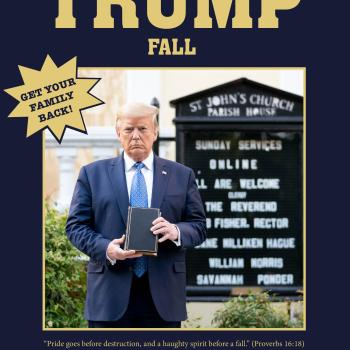 Yesterday, political commentator Chris Matthews interviewed Johnathan Lemire, White House correspondent for the Associated Press, on Chris’ MSNBC Hardball television program about speaking clearly. They discussed the decision of President Donald Trump to have Qasem Soleimani, Iran’s top military general, killed a week ago with a missile strike as he was leaving the airport at Baghdad, Iraq. Lemire said Soleimani was “taken out.” Matthews interrupted Lemire, objecting to that expression. He said he didn’t like it and asked why Lemire wouldn’t just use the most common word for it–“killed.” Lemire said he was “quite comfortable” with saying that Soleimani was “killed.”
Yesterday, political commentator Chris Matthews interviewed Johnathan Lemire, White House correspondent for the Associated Press, on Chris’ MSNBC Hardball television program about speaking clearly. They discussed the decision of President Donald Trump to have Qasem Soleimani, Iran’s top military general, killed a week ago with a missile strike as he was leaving the airport at Baghdad, Iraq. Lemire said Soleimani was “taken out.” Matthews interrupted Lemire, objecting to that expression. He said he didn’t like it and asked why Lemire wouldn’t just use the most common word for it–“killed.” Lemire said he was “quite comfortable” with saying that Soleimani was “killed.”
Although that was the end of that discussion, I think Matthews made a good point, though he didn’t elaborate. Lemire surely was merely reflecting language he sometimes heard from authorities. Why do authorities, such as some of military people, use an expression for killing someone as having them “taken out”?
Is it not like police officers in the U.S. reporting about people by calling them “individuals.” “Taking out” an “individual” is jargon used by these insiders. Sometimes, jargon is necessary when it aids in communication. But in many instances such jargon is unnecessary, especially when it does not add to communication as in these two cases.
Some jargon is hubris. I think that is the case with the expression “taken out” and the word “individual” that are used by some of military and police personnel. I suspect that whoever started using it thought it made those in uniform, as we would say, “look cool.”
So, Chris Matthews did not indicate why he objected to Lemire describing Soleimani’s killing as “taken out.” Did he sense it as hubris? Maybe Matthews just thought using it softened what it actually means–killing. Regardless, many people who use such language, as Lemire did, likely don’t question its use and only use it because others do.
I prefer to use words that are commonly used by most people and that convey a clear understanding of what is being said. And I do so by appealing often to dictionaries. I liken this to something Jesus said in his Sermon on the Mount. However, I understand that some folks likely would disagree with me on this, insisting it is irrelevant.
In Jesus’ Sermon of the Mount he said, “you have heard that it was said to those of ancient times, ‘You shall not swear falsely, but carry out the vows you have made to the Lord.’ But I say to you, Do not swear at all, either by heaven, for it is the throne of God, or by the earth, for it is his footstool, or by Jerusalem, for it is the city of the great King. . . . Let your word be ‘Yes, Yes’ or ‘No, No’; anything more than this comes from the evil one” (Matthew 5.33-37 NRSV).
W. D. Davies and Dale Allison explain in their commentary on Matthew the first portion of this statement, about swearing falsely, “This presumably summarizes OT [Old Testament] teaching as found in such places as Exod 20.7; Lev 1912” etc. (p. 533). Those texts are prohibitions about swearing falsely in God’s name, i.e., by uttering it. God’s name in the OT is YHWH, probably written Yahweh or maybe Yehvah. But Jesus interjects not to swear at all; rather, he advocates for just saying what is true.
Don (D. A.) Carson explains in his commentary on Matthew that it was due to “clever lies and casuistical deceit” that had been practiced. In contrast, “Jesus will abolish oaths” by replacing them with “consistent truthfulness. If one does not swear at all, one does not swear falsely” (p. 153).
So, if someone was killed, say he or she was killed rather than “taken out,” which could mean all kinds of things, such as taken out behind the woodshed and who knows what.















